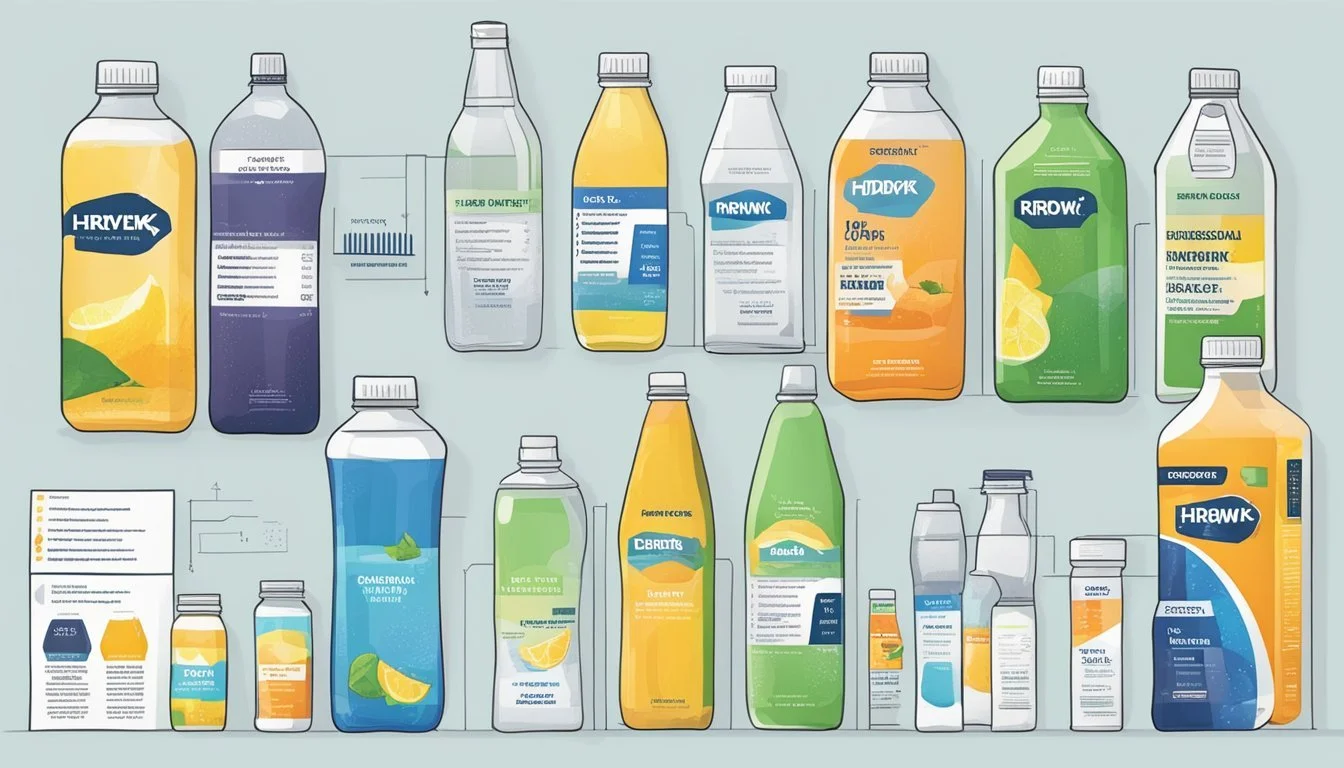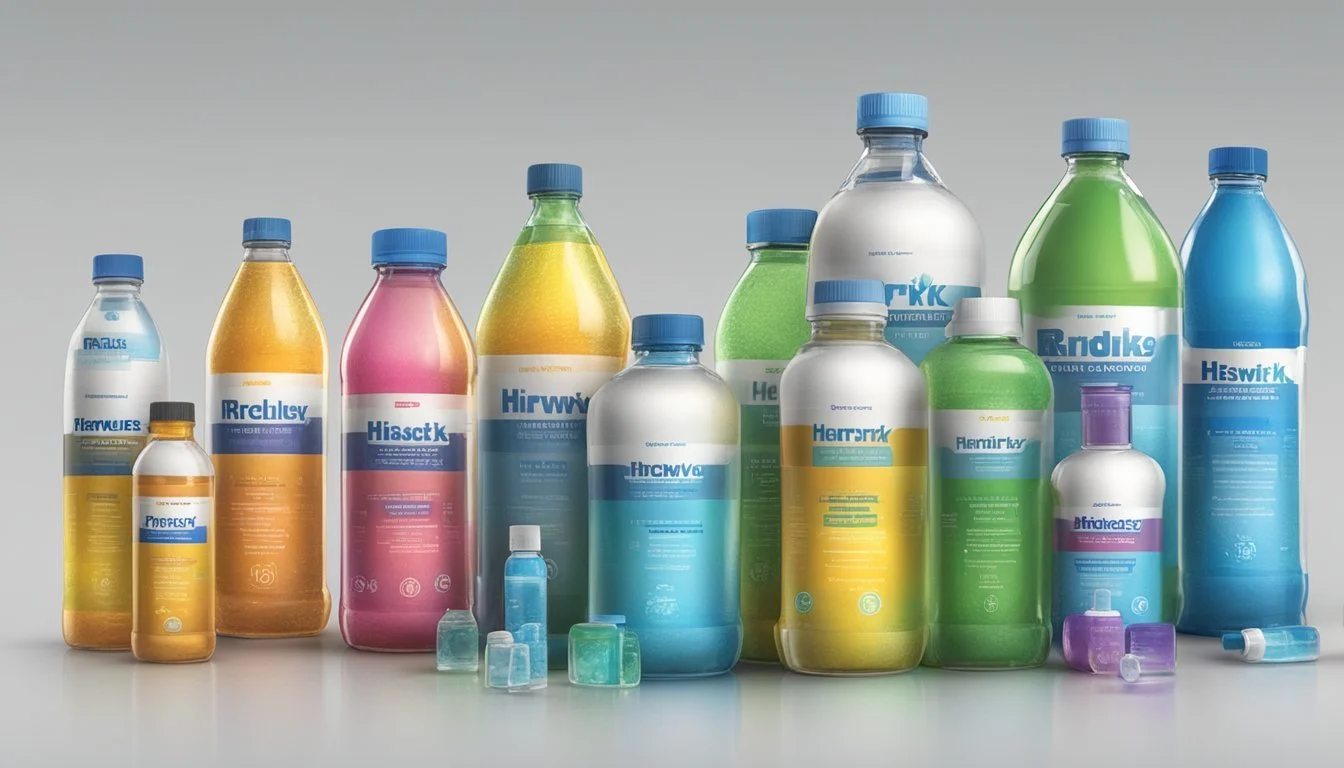How Many Servings of Hrdwrk Electrolytes Is Too Much
Expert Guidelines
When it comes to hydration and health, understanding the right amount of electrolytes to consume can make a significant difference. Electrolytes are essential minerals that help balance fluids in the body, support nerve and muscle function, and maintain overall health. Hrdwrk Electrolytes offers a convenient solution for staying hydrated, but how much is too much? The recommended serving size should not be exceeded to avoid symptoms of electrolyte imbalance such as confusion, irregular heart rate, and fatigue.
Each package of Hrdwrk Electrolytes contains 60 servings, which is twice the average number of servings other brands offer. This can be tempting for some, but it's crucial to stick to the recommended dosage. Consuming more than the suggested amount could lead to high levels of certain electrolytes like sodium, putting you at risk for issues such as hypernatremia.
To ensure you reap the benefits of Hrdwrk Electrolytes without compromising your health, moderation is key. Always follow the guidelines provided and consult a healthcare professional if you have any concerns about your electrolyte intake. This approach will help you maintain optimal hydration and keep your body's systems functioning properly.
Understanding Electrolytes
Electrolytes are essential minerals that carry an electrical charge. They are crucial for various bodily functions.
Key electrolytes include sodium, chloride, potassium, magnesium, calcium, and phosphate. These minerals help regulate important processes in the body.
Sodium and chloride are primarily found in extracellular fluid. They are essential for maintaining blood volume and pressure.
Potassium, on the other hand, is critical for heart rhythm and nerve function. It's predominantly located inside the cells.
Magnesium and calcium play vital roles in muscle contraction and nerve signaling.
Phosphate is crucial for energy production and bone health.
Electrolytes are lost through sweat. During intense exercise or hot weather, it's vital to replenish them to avoid imbalances.
Ingesting too many or too few electrolytes can disrupt body functions. Electrolytes help balance fluids between the inside and outside of cells, preventing dehydration and overhydration.
The Role of Hydration
Hydration is fundamental to maintaining the body's fluid balance. It involves the intake of water and electrolytes, necessary for various bodily functions.
Water and electrolytes are essential for hydration. They help regulate body temperature, support digestion, and ensure efficient muscle function.
Fluid balance depends on the equilibrium between water intake and loss. Daily activities such as sweating and urination affect this balance.
When the body loses fluids through sweating or urine, it needs replenishment. Drinking water and electrolyte-rich drinks helps to rehydrate and restore fluid balance.
According to health experts, maintaining hydration aids in sustaining energy levels and concentration. Proper fluid intake is essential for optimal physical performance.
Effects of Excessive Electrolyte Consumption
Excessive consumption of electrolytes, such as those found in HRDWRK products, can lead to several health issues.
Electrolyte imbalance occurs when the levels of minerals in the body are too high or too low. Common symptoms include nausea, vomiting, and diarrhea. These symptoms may result from consuming too many electrolyte drinks.
High intake of sodium, a common electrolyte, can cause hypernatremia and high blood pressure. Increased sodium levels force the body to retain water, leading to elevated blood pressure over time.
Hyperkalemia, caused by excessive potassium intake, can be dangerous for heart health. Symptoms include muscle weakness, fatigue, and irregular heart rhythms. This condition can be life-threatening if not treated promptly.
Too much calcium can lead to hypercalcemia. Symptoms include weakness, confusion, and kidney stones. In severe cases, it can lead to abnormal heart rhythms and calcification of tissues.
Kidney disease and heart failure can be exacerbated by consuming too many electrolytes. The kidneys and heart have to work harder to balance and filter excess minerals, increasing stress on these organs.
Table summarizing potential issues:
Electrolyte Excessive Consumption Effects Sodium Hypernatremia, high blood pressure Potassium Hyperkalemia, irregular heart rhythms Calcium Hypercalcemia, kidney stones, confusion
Maintaining balanced electrolyte levels is crucial for overall health. Overloading the body with these minerals can disrupt normal physiological functions.
Signs of Electrolyte Imbalance
Electrolyte imbalances can manifest through various symptoms, signaling the body's urgent need for correction.
Confusion is a common sign. Individuals may experience difficulty thinking clearly or processing information.
Weakness and fatigue often accompany imbalances. These can include general tiredness or severe exhaustion.
Muscle cramps and muscle weakness can indicate abnormal electrolyte levels. These symptoms may occur suddenly and can be quite painful.
Headaches are another symptom. They can range from mild to severe and may persist until electrolyte balance is restored.
Irregular heart rate, also known as arrhythmia, can occur. This may feel like palpitations or an abnormal heartbeat.
Seizures can result from severe imbalances. This is a critical condition that requires immediate medical attention.
Swelling in various body parts, such as hands or feet, can arise due to fluid retention linked to electrolyte issues.
Dizziness and irritability are additional signs. Someone may feel lightheaded or have mood swings due to electrolyte disruptions.
Recognizing these signs early can prevent more severe health issues. Monitoring electrolyte levels is crucial, especially for those consuming multiple servings of electrolyte supplements.
Monitoring and Maintaining Electrolyte Balance
Balancing electrolytes is essential for overall health and optimal performance, particularly for those engaged in physical activity and athletes.
Hydration: Proper hydration is key. While sports drinks and electrolyte-infused waters can be beneficial during intense physical activity, plain water is often sufficient for less strenuous exercise or daily hydration needs.
Thirst: Listening to your body's thirst signals can help maintain balance. It's vital to drink fluids when thirsty, but avoid excessive intake.
Blood Tests: Regular blood tests, particularly an electrolyte panel, can help monitor levels. These tests measure concentrations of electrolytes like sodium, potassium, and chloride in the blood.
Health Conditions: Individuals with certain health conditions or those taking medications that affect electrolyte levels should be especially vigilant. Consulting a healthcare provider for personalized recommendations is advised.
Climate: Environmental factors such as hot and humid climates increase sweat loss, necessitating more diligent electrolyte and fluid intake.
Physical Activity: The intensity and duration of physical activity also influence electrolyte needs. More vigorous exercise demands greater replenishment through fluids and electrolytes.
Sports Drinks vs. Plain Water: Sports drinks are designed to provide not only electrolytes but also carbohydrates for energy. For shorter or less intense activities, plain water might suffice, while sports drinks can be more appropriate for prolonged, strenuous workouts.
It's crucial to strike a balance and not overconsume electrolyte supplements like Hrdwrk. Excessive intake can lead to adverse effects such as confusion and irritability.
By paying attention to these factors, one can effectively manage and maintain a healthy electrolyte balance, ensuring optimal physical performance and health.
Impact of Electrolytes on Physical Performance
Electrolytes play a crucial role in maintaining the body's physical performance. They are essential for various bodily functions that athletes rely on during exercise.
Proper levels of electrolytes help in muscle contractions and nerve signaling. Sodium, potassium, and calcium are particularly important for these processes. Without adequate electrolytes, muscles can cramp or fatigue more quickly.
Athletes participating in endurance sports face significant electrolyte loss through sweat. Sports drinks containing sodium and potassium are commonly used to replenish these losses and maintain energy levels.
Blood pressure and heart rate are also influenced by electrolyte balance. Imbalances can lead to dizziness, fatigue, and even severe health issues during physical activity.
Electrolytes are particularly vital during long-duration activities. They ensure that the heart and other muscles function properly under stress. An optimal balance can prevent dehydration, allowing for sustained endurance.
Incorporating electrolytes through dietary sources is possible, but during intense physical exertion, specially formulated drinks can be more effective.
In summary, maintaining the right electrolyte balance is essential for peak physical performance during exercise and competitive sports.
When to Seek Medical Care
If symptoms of dehydration persist despite consuming electrolyte drinks like HrdWrk, it's crucial to seek medical care.
Signs to watch for include persistent vomiting or diarrhea lasting more than a day. These conditions can rapidly deplete the body’s electrolytes and fluids, requiring professional evaluation and treatment.
A rapid heart rate is another sign that medical care is needed, as it might indicate a severe electrolyte imbalance or dehydration.
For individuals with diabetes, monitoring blood glucose levels is essential. If high electrolyte intake or dehydration causes unstable glucose levels, medical advice should be sought immediately.
Hospitals can provide intravenous fluids and other treatments to quickly restore balance, especially when oral intake is insufficient or not tolerated.
Consulting a registered dietitian can also be beneficial for tailored advice on electrolyte management based on individual needs and health conditions.







